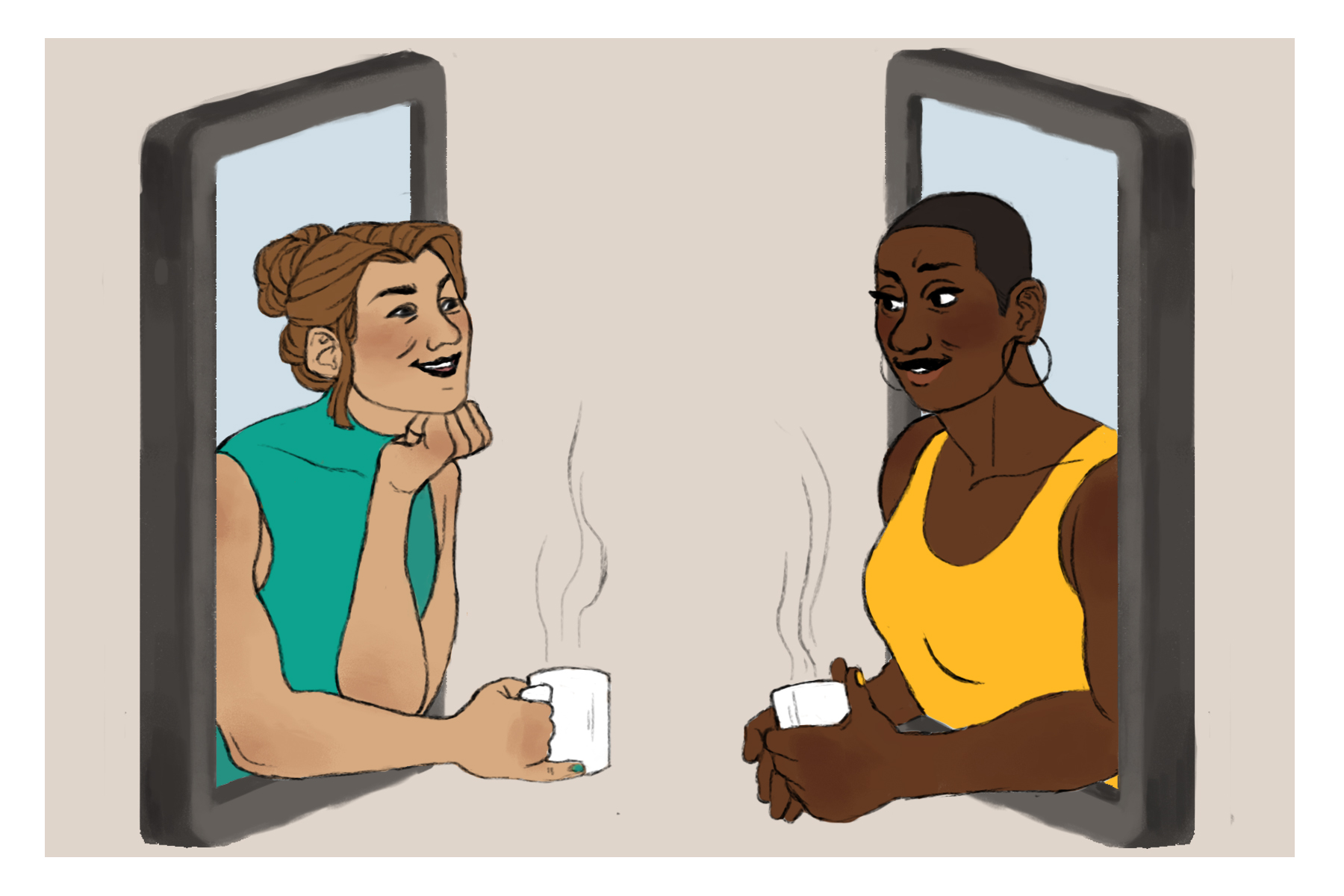There’s no question that the introduction of Bumble to the dating world in 2014 has transformed the way in which women and men alike view online dating. Whitney Wolfe, founder of Bumble — who has now grossed around $230 million from the app — created Bumble with the intention of allowing women to control the activity of their profile and feed.
This long-anticipated inversion of dating app norms has altered the potential and success of online dating as a viable option. Before Bumble, the concept of online dating was inextricably linked with the possibility of only being bombarded with cheesy one-liners or sexually charged comments. If you were a lucky enough user to avoid that, there was still the off-chance that your match was a predator of some sort. However, Bumble was made by women, for women solely to avoid such occurrences.
The app’s structure only allows for female users to initiate conversation, or “make the first move.” This specific feature has been deemed pretty favorable by both men and women. On the one hand, men don’t feel the typical pressure to be the first to reach out, as that initial interaction can either make or break their chances of success. On the other hand, women don’t feel as though their chances of success are determined by whether or not they feel the responsibility to respond to advancements made by male users. This attribute creates a relaxed environment within the space of the app, allowing for a more user-friendly experience and one that is likely to be recommended and shared.
The growth of Bumble has also led to a more positive reputation of online dating for women. The prospect of online dating has had its fair share of backlash in the past, being deemed as a desperate last resort for those who didn’t find success within the conventional dating atmosphere. However, Bumble helps relieve some of the pressure of the restrictions of conventional online dating platform standards. For women who are perhaps out of touch with the dating world of their specific environment or time, Bumble offers a safe and comfortable alternative.
Bumble owes much of its achievement to the strategic and modern marketing techniques deployed by Wolfe and her team. Wolfe created — much like Beyoncé — a hive of supporters who act as the company’s ambassadors to various social environments, including office spaces, social media platforms and, most importantly, college campuses.
Wolfe has employed a number of young college-age women across the nation to help foster the growth of the app. By using these young women as representatives, Wolfe is helping to realign the narrative and notion of online dating to include 20-year-old users, which continues to disrupt the idea that online dating stands as a viable option only after someone has experienced repeated failure under conventional dating practices.
Why can’t online dating become the road most traveled for young women? Why must people deduce by trial and error that traditional dating is not for everyone? Wolfe begs these questions and presents the answer: People don’t have to rely strictly on convention to find a successful relationship, and the prospect of online dating should not be as daunting as it has been made out to be.
The distinctive black and yellow Bumble emblem is featured across both the Instagram and college party scenes. Famous users such as Mary Ralph Lawson serve as members to the Bumble marketing team, using their influence to leverage the amount of downloads the app gets. Meanwhile, female sorority members serve as influencers on college campuses. Scroll through any photo series of a college party and more likely than not you’ll spy a clan of girls adorned in yellow and black Bumble bandanas and stickers. Bumble also sponsors bar tabs around various college towns, inviting young men and women special access and a plethora of free drinks in return for downloading the app.
Wolfe’s venture did not stop at online dating. She continued to grow her business by adding additional modes of Bumble. Bumble BFF and Bumble Bizz are two additional elements that make up the Bumble conglomerate.
Bumble BFF is a platform in which women have the opportunity to build their friendship circle within a respective area. By switching to the friendship mode, people of the same sex can reach out to one another (initiation by either party is optional) and meet up as friends. Many people have found this feature of the app extremely helpful when moving to a new and foreign city. Bumble BFF reinforces the idea that building a network of friendships is equally as important as being in a romantic relationship. Offering a comfortable environment in which people can explore and meet people in their area is part of the reason why Bumble is so popular.
Recently, Wolfe and her team introduced a new mode called Bumble Bizz, a platform intended to help women in a certain area develop a professional network. Users can now not only swipe for potential dates, but also for potential employers and job opportunities. Perhaps the most notable introduction of this new portion of Bumble was its partnership with business woman extraordinaire, Kris Jenner, who used the app to look for and hire a new personal assistant. Jenner’s endorsement of the app awarded it a mentionable amount of professional credibility.
The world is eager to see what Wolfe will do next with Bumble. What new tactics or ventures are in store for the future? It seems as though the app will soon graduate to become the most popular dating and networking app of the various apps available at the moment. The Queen Bee Wolfe and her trusted family of bees continue to work to expand the influence of Bumble at both a national and potentially international level.
















